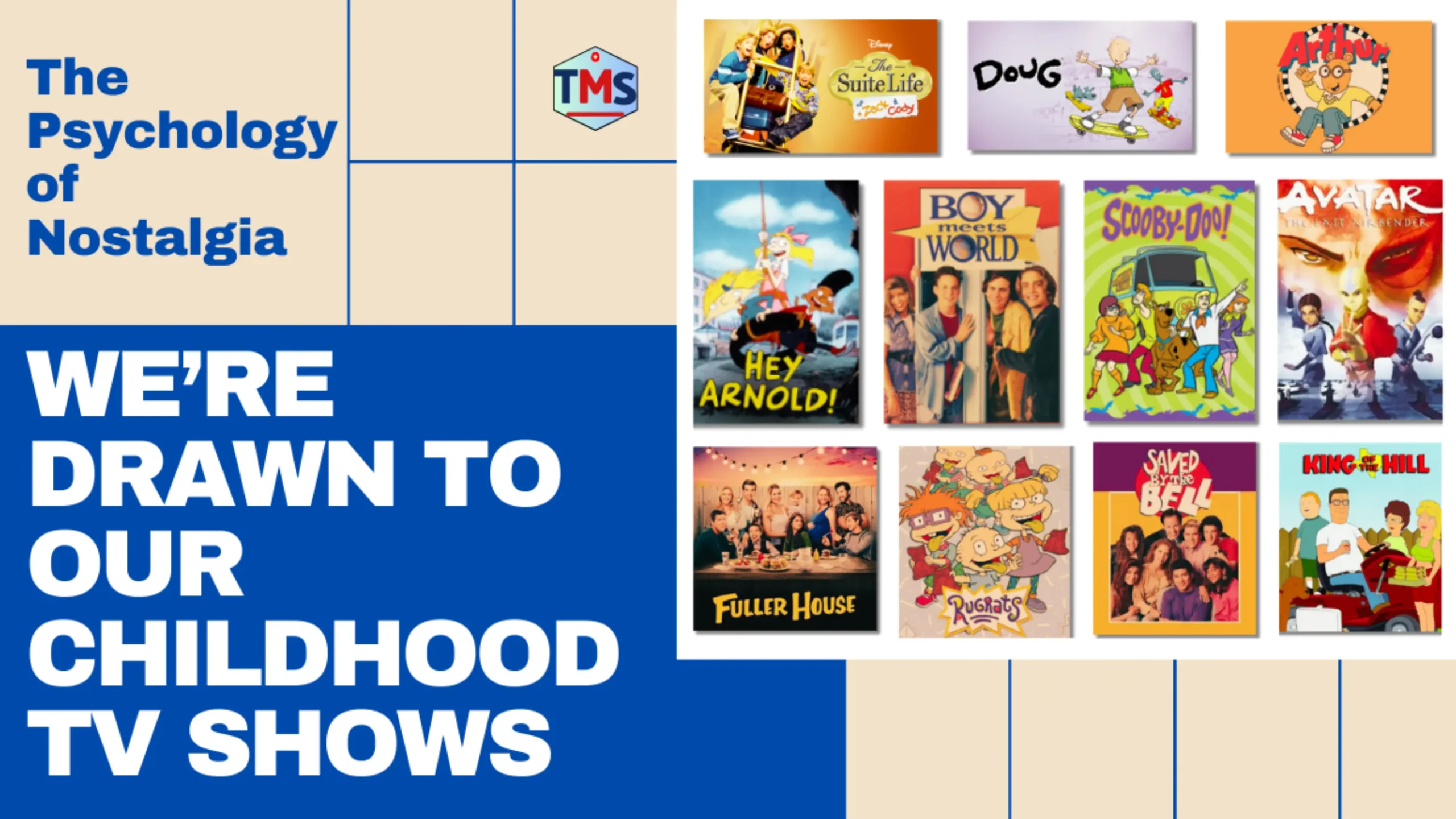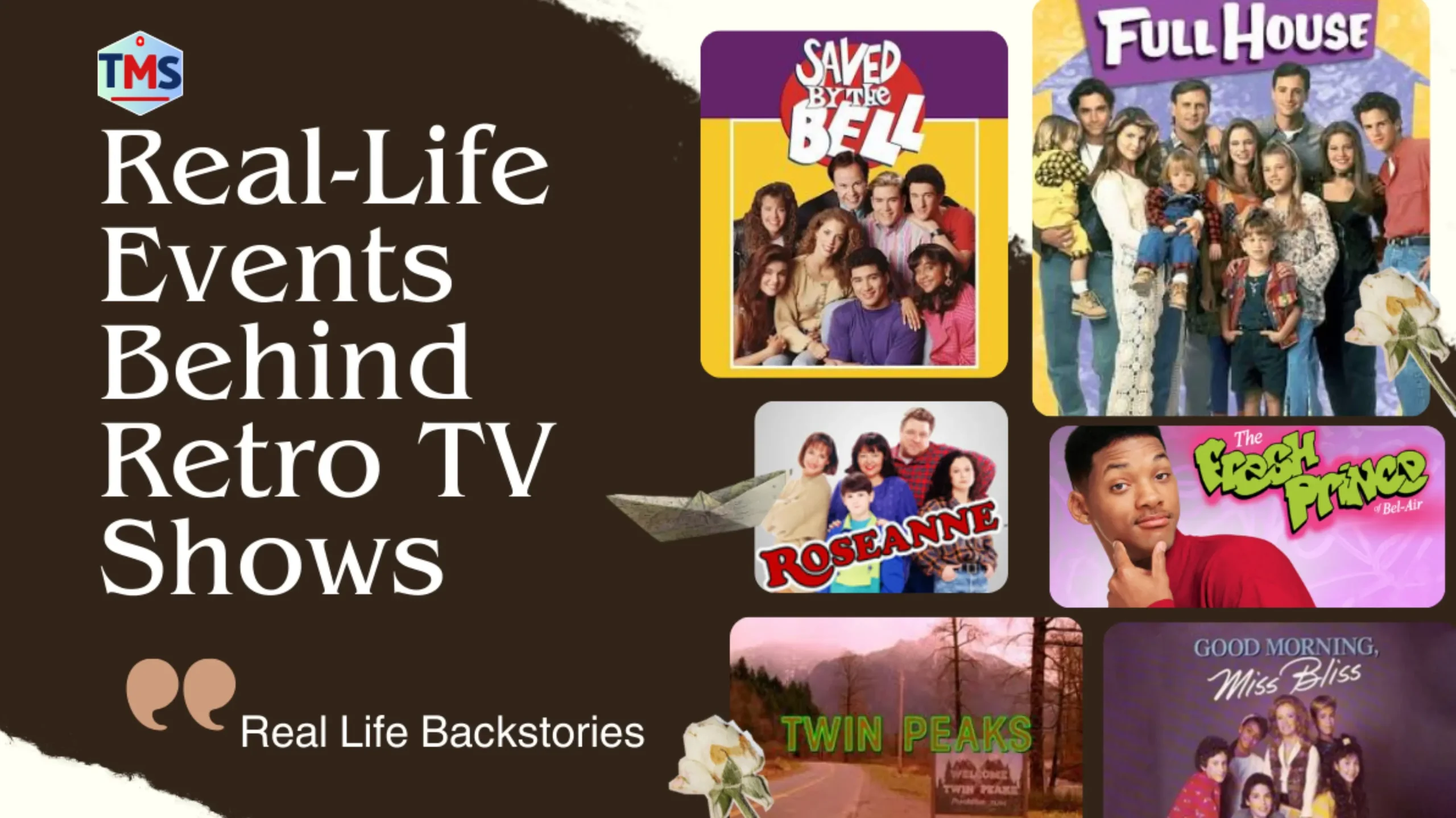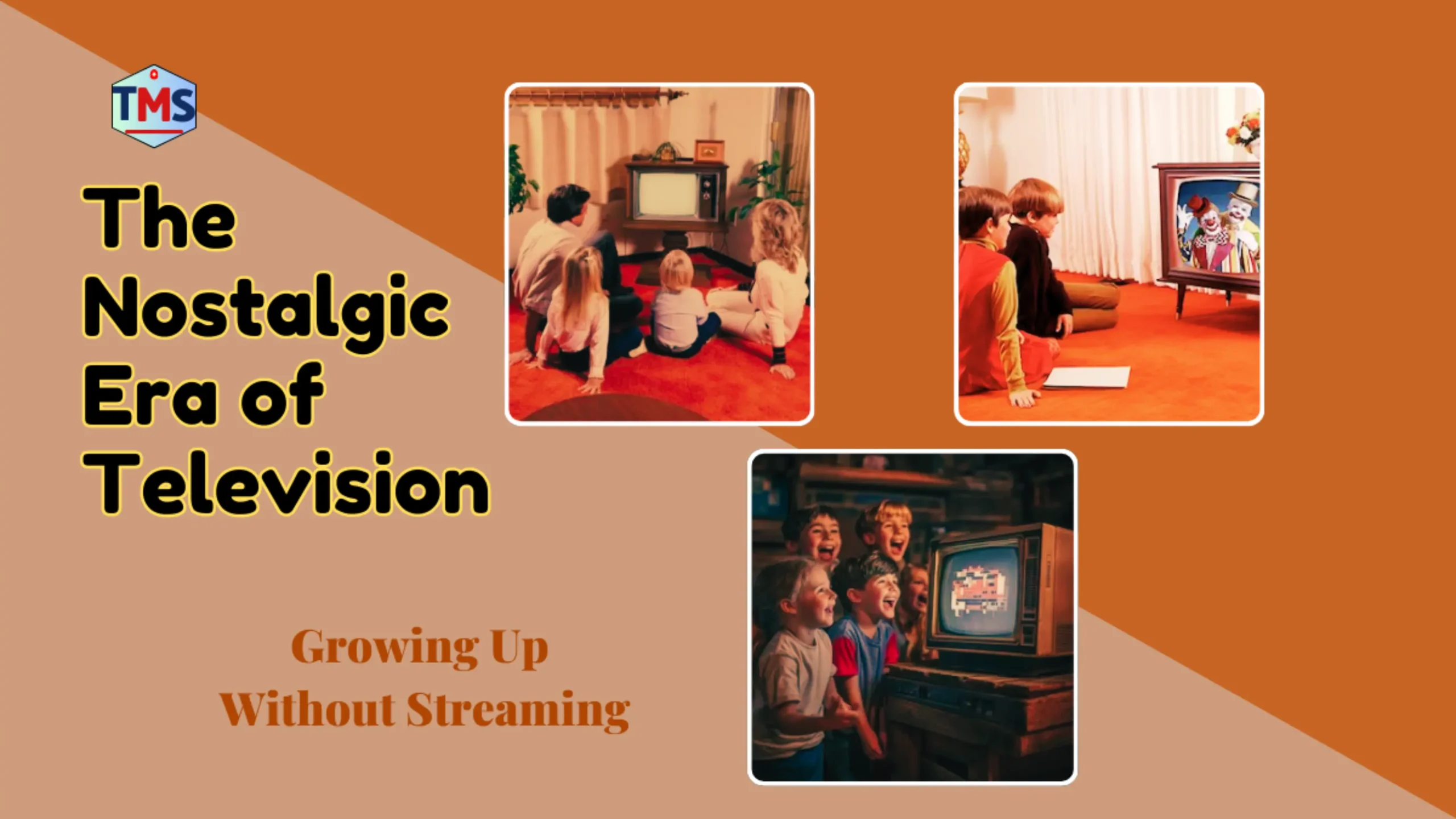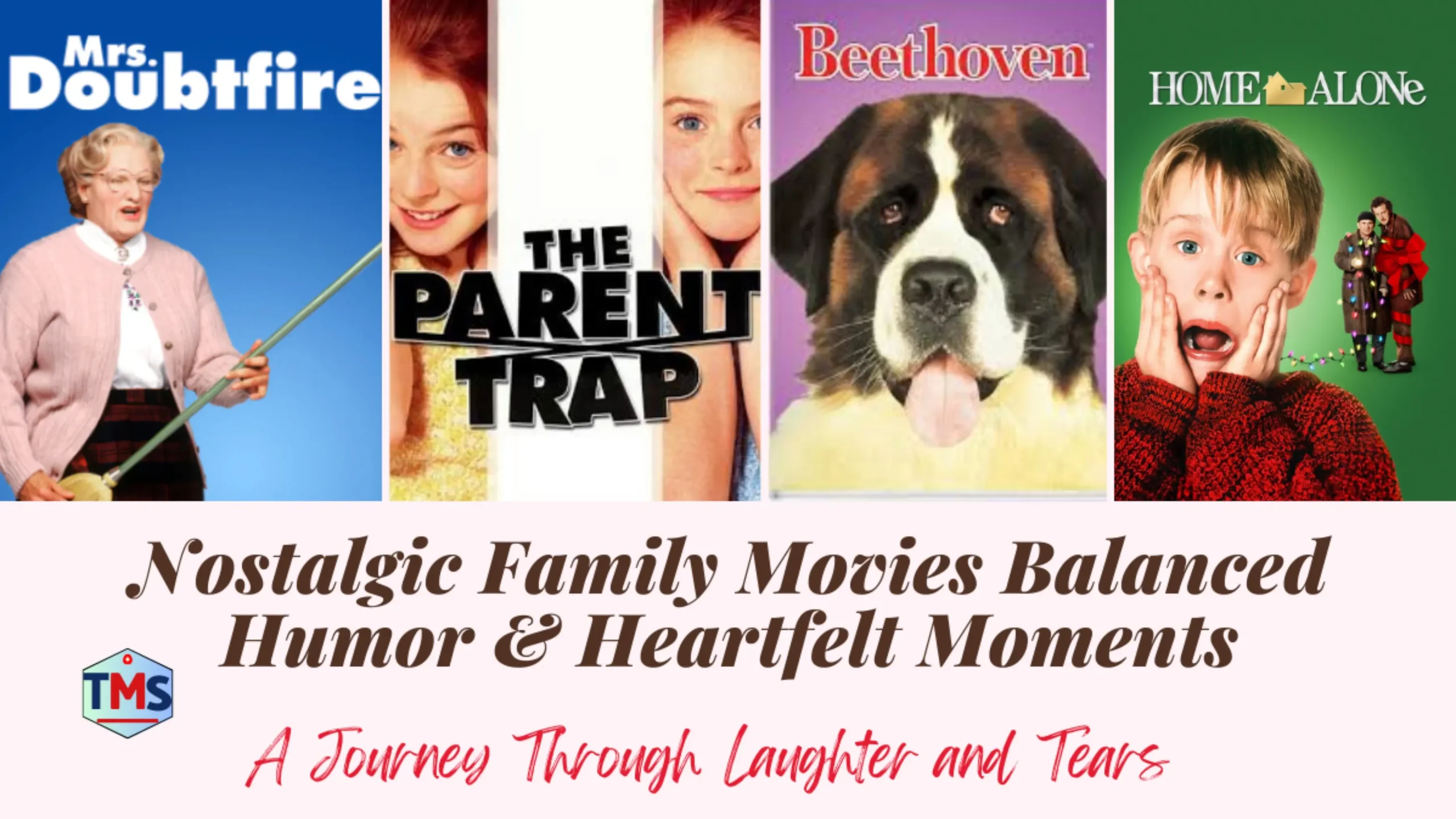My Memories: Nostalgic Feeling About Childhood TV Shows
When I think back to Saturday mornings as a kid, there’s this rush of warmth that hits me, like stepping into a sunbeam on a cold day. The smell of sugary cereal, the hum of the television, and the sheer joy of curling up on the couch to watch cartoons—it’s a memory as vivid as yesterday. Shows like Rugrats, Scooby-Doo, or Saved by the Bell weren’t just entertainment; they were part of my identity, woven into the fabric of my childhood. And now, as an adult, I find myself drawn back to those same shows, like an old friend I’ve missed. But why? What is it about those childhood TV shows that makes them so irresistible even decades later?
Psychologists have a name for this phenomenon: nostalgia. It’s a powerful, bittersweet emotion that acts like a mental time machine, transporting us to moments when life felt simpler, safer, and full of possibility. For me, watching The Fresh Prince of Bel-Air isn’t just about laughing at Will’s antics or Uncle Phil’s stern wisdom. It’s about remembering a time when my biggest worry was whether my Tamagotchi would survive the school day, not paying bills or navigating a 24/7 work culture.
I think nostalgia hits especially hard for millennials and Gen Z because, let’s face it, growing up in the 90s and early 2000s was a vibe. Our world was colorful and quirky, from Lisa Frank folders to slap bracelets. The internet wasn’t all-consuming yet, and our afternoons were spent riding bikes until the streetlights came on. Those TV shows were like anchors in a sea of chaotic joy—consistent, comforting, and always there. And now, in the chaos of adulthood, it’s like our brains crave that stability again.
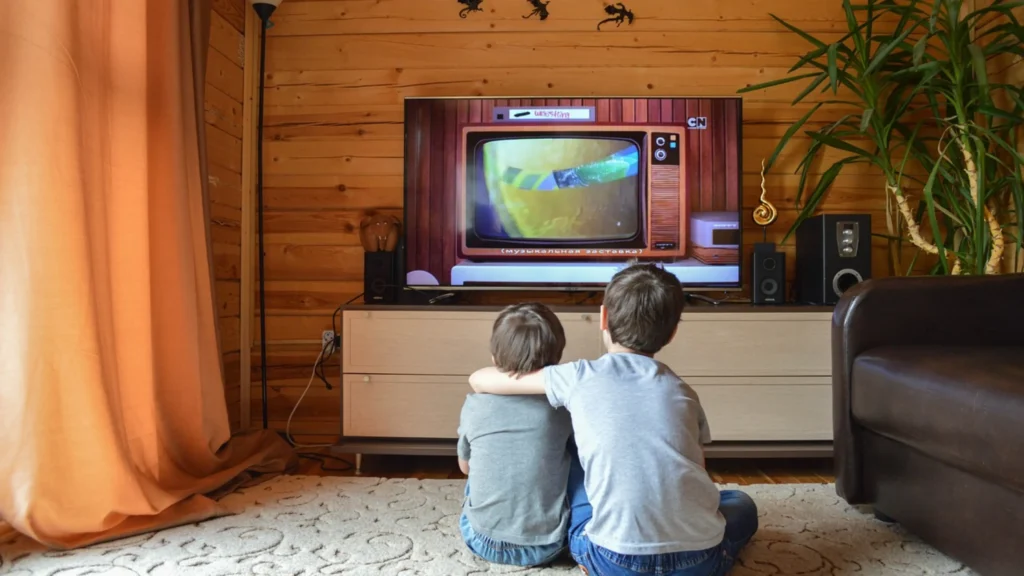
There’s actually some science behind this. Nostalgia has been shown to boost mood, increase feelings of social connection, and even provide a sense of meaning. When I’m watching an old episode of Hey Arnold! or Boy Meets World, I’m not just remembering my childhood; I’m reconnecting with a part of myself I thought I’d left behind. It’s grounding, reminding me that who I was then is still part of who I am now.
But it’s not just personal. Nostalgia has become a shared cultural experience. Look at the rise of reboots, remakes, and streaming platforms offering entire catalogs of classic shows. There’s a reason Netflix brought back Fuller House and why Disney+ lets us binge on The Suite Life of Zack & Cody. It’s not just a cash grab—though let’s be real, it’s partly that—it’s also because these shows tap into a universal desire to relive the “golden years”.
And let’s not forget how these shows have evolved for us. As a kid, I loved Arthur because of its goofy characters and funny situations. As an adult, I rewatched it and realized how many lessons about friendship, diversity, and kindness were baked into those episodes. Shows like The Simpsons or King of the Hill hit differently now, too—their humor and commentary are sharper, more poignant, like little Easter eggs my younger self completely missed.
For some, revisiting old shows is a way to bond across generations. My niece recently got into Avatar: The Last Airbender, and watching it with her feels like passing down a family heirloom. We laugh at the same jokes, cry at the same moments, and it’s like we’re bridging the gap between two worlds: hers, full of YouTube and TikTok, and mine, filled with VHS tapes and dial-up internet.
Of course, nostalgia isn’t without its quirks. It’s easy to romanticize the past and forget that not everything was perfect. Some shows don’t hold up under modern scrutiny, whether it’s outdated stereotypes or jokes that don’t land anymore. But even those flaws are part of the story, a reminder of how far we’ve come and how much we’ve grown.
So why are we drawn to our childhood TV shows? Because they’re more than just shows. They’re time capsules of who we were, what we loved, and how we saw the world. They remind us of the days when life felt wide open, when possibilities seemed endless, and when joy came easily. And in a world that often feels heavy and complicated, that’s a gift we could all use a little more of.
As I sit here, streaming an old episode of Doug and munching on a bowl of Frosted Flakes, I can’t help but smile. For a little while, I’m back on that couch, a kid again, dreaming big and laughing loud. And honestly? It feels pretty amazing.
The Psychology of Nostalgic Television
Nostalgia isn’t just a sentimental feeling—it’s a complex psychological phenomenon with measurable effects on our wellbeing. Dr. Constantine Sedikides and colleagues at the University of Southampton have conducted extensive research showing that nostalgia can counteract loneliness, boredom, and anxiety while increasing feelings of social connectedness and meaning in life (Sedikides et al., 2015).
When we revisit childhood shows like “Dragon Ball Z” or “Rugrats,” we’re not just seeking entertainment—we’re activating neural pathways connected to simpler times when our identities were still forming. According to developmental psychologist Dr. Avril Thorne, these early narrative experiences become part of our “autobiographical memory,” helping us make sense of who we are (Thorne & McLean, 2003).
The comfort these shows provide is neurologically similar to reconnecting with an old friend. Research using fMRI scans has shown that nostalgic memories activate regions in the brain associated with reward processing and positive emotions (Oba et al., 2016). No wonder binge-watching “SpongeBob SquarePants” feels so good during stressful times!
Emotional Development Through Animation and Sitcoms
The shows we consumed as children weren’t just entertaining—they were teaching us about emotions, relationships, and values during critical developmental periods. For example, “Mister Rogers’ Neighborhood” deliberately addressed difficult emotions and life challenges at a pace children could process. Fred Rogers worked closely with child development experts like Dr. Margaret McFarland to ensure his content supported healthy emotional growth (Cohen, 2018).
These early viewing experiences helped shape our emotional intelligence. A 2021 study published in the Journal of Children and Media found that children who watched programs with explicit emotional content showed improved emotional recognition skills compared to control groups (Rasmussen et al., 2021). When I rewatch episodes of “Avatar: The Last Airbender,” I’m struck by how the show taught complex lessons about responsibility, forgiveness, and finding one’s path—lessons that undoubtedly influenced my own moral development.
The Time Capsule Effect: TV as Cultural Context
Our childhood shows also serve as time capsules of cultural values and social concerns. Take “Captain Planet” with its environmental messaging, reflecting growing climate awareness in the early 1990s, or “The Fresh Prince of Bel-Air,” which explored race, class, and family dynamics during a period of significant social change.
Media scholar Dr. Lynn Spigel argues that family sitcoms from different decades reveal evolving American values: from the traditional gender roles in “Leave It to Beaver” to the working mothers and diverse family structures in “The Cosby Show” or “Full House” (Spigel, 2013). When we revisit these shows, we’re reconnecting with the social context that shaped our early understanding of the world.
The Saturday morning cartoon block itself represented a shared cultural experience that today’s streaming generation will never know. Nielsen ratings from 1995 show that over 14 million children tuned in for Saturday morning programming blocks across major networks, creating a collective viewing experience that built cultural touchstones across geographic and socioeconomic boundaries (Nielsen Media Research, 1996).
Case Studies in Childhood Appeal
Tom and Jerry: The Enduring Appeal of Slapstick
The cat-and-mouse chase of “Tom and Jerry” has captivated children across generations since its debut in 1940. Its physical comedy operates on what psychologist Paul McGhee terms “incongruity theory”—humor arising from the violation of expectations (McGhee, 1979). The extreme physical resilience of the characters (Tom getting flattened only to pop back to normal) helps children process concepts of permanence and change in a safe context.
Warner Bros. reported that “Tom and Jerry” content still generates over 2 billion views annually across digital platforms, demonstrating its cross-generational appeal (WarnerMedia Annual Report, 2020).
Scooby-Doo: Mystery, Friendship, and Agency
“Scooby-Doo” has been solving mysteries since 1969, with over 400 episodes across multiple series. Its enduring formula—friends solving mysteries with a cowardly Great Dane—taps into children’s desire for agency and problem-solving. According to cultural anthropologist Dr. Elizabeth Chin, the show allows children to vicariously experience the thrill of outsmarting adults and exposing deception (Chin, 2016).
The franchise has maintained remarkable cultural relevance, with each new iteration introducing the characters to new generations. By 2021, the Scooby-Doo franchise had generated over $1 billion in merchandise sales globally (Warner Bros. Consumer Products, 2021).
Sesame Street: Educational Revolution
Few children’s shows have made as significant an impact as “Sesame Street.” Launched in 1969 with the explicit goal of preparing underprivileged children for school, the show pioneered the use of rigorous research in children’s programming. More than 1,000 studies have documented its educational effectiveness, with children who regularly watched the program showing improved cognitive outcomes, particularly in literacy and numeracy (Fisch & Truglio, 2014).
The show’s global reach is staggering—by its 50th anniversary, “Sesame Street” had reached over 150 million children across more than 150 countries, adapting its content to address local educational needs while maintaining its core approach (Sesame Workshop Annual Report, 2019).
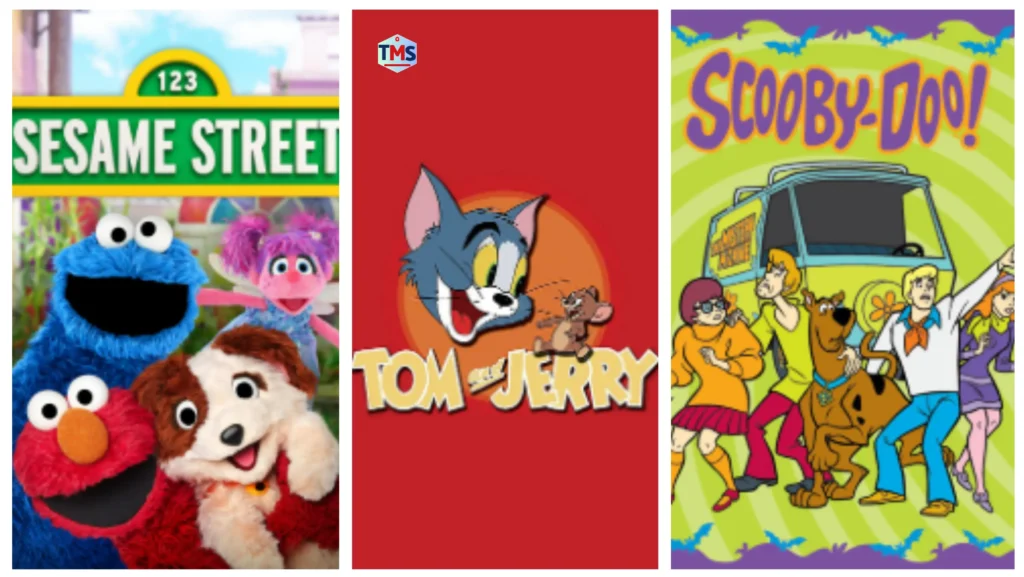
Beyond Nostalgia: Hidden Influences and Lasting Impact
Values Education Through Animated Mentors
Children’s programming often contains deliberate moral messaging. The teamwork and diversity celebrated in “Power Rangers,” the environmental consciousness in “Captain Planet,” or the exploration of friendship challenges in “My Little Pony: Friendship is Magic” weren’t accidental themes—they were designed to instill specific values.
Research by media psychologist Dr. Maya Götz found that children often cite TV characters as moral guides alongside parents and teachers, demonstrating television’s significant role in values formation (Götz et al., 2018). When asked about moral dilemmas, children frequently referenced lessons from shows they watched, showing how deeply these narratives are internalized.
Creative Inspiration and Career Paths
For many adults, childhood shows sparked interests that later developed into careers or serious hobbies. A 2019 survey of professionals in STEM fields found that 43% cited science-themed children’s shows like “Bill Nye the Science Guy” or “The Magic School Bus” as early influences on their career choices (American Association for the Advancement of Science, 2019).
The creativity showcased in shows like “Art Attack” or “Reading Rainbow” introduced children to artistic expression and literary exploration that continued into adulthood. The influence extends to entertainment itself—many of today’s showrunners and directors cite specific childhood programs as their inspiration for entering the field.
Then vs. Now: How Children’s TV Has Evolved
Today’s children’s programming landscape differs dramatically from previous generations. The average episode length has shortened significantly—from 22-30 minutes for traditional programming to sometimes just 5-11 minutes for many current shows. Pacing has accelerated dramatically, with scene changes occurring every 4 seconds in some modern programs compared to every 20 seconds in shows from the 1980s (Lillard & Peterson, 2011).
These changes reflect broader shifts in attention economics and media consumption patterns. While modern shows often feature more diverse representation and sophisticated animation, some researchers worry about the impacts of faster pacing. A 2011 study published in Pediatrics found that children who watched fast-paced programming performed worse on executive function tasks immediately afterward compared to those who watched slower-paced content (Lillard & Peterson, 2011).
What we’ve gained in accessibility and diversity of content, we may have lost in contemplative space and narrative development. Shows like “Bluey” stand out in the current landscape precisely because they combine modern sensibilities with the slower, more thoughtful pacing of earlier eras.
The Science of Comfort Viewing
The phenomenon of adults returning to childhood programming isn’t just anecdotal—it’s backed by research. A 2020 Nielsen report noted a 60% increase in viewing of nostalgic content during the COVID-19 pandemic, with children’s shows from the 1980s-2000s seeing particularly strong streaming numbers (Nielsen Media Research, 2020).
This “regression to comfort viewing” serves a psychological purpose. Research by Dr. Krystine Batcho, a nostalgia researcher at Le Moyne College, suggests that during times of stress or transition, nostalgic content provides continuity of identity and emotional regulation (Batcho, 2013). When we rewatch “The Magic School Bus” or “Arthur,” we’re not just entertaining ourselves—we’re engaging in a form of emotional self-care.
Conclusion: The Shows That Shaped Us
Our childhood TV shows are more than just entertainment—they’re formative experiences that helped shape our worldviews, taught us emotional lessons, and provided cultural context during our most impressionable years. The neural pathways formed while watching these programs remain strong decades later, explaining why the theme song to “DuckTales” can instantly transport us back to our childhood living rooms.
As streaming services continue to revive nostalgic content and reboot beloved series, they’re tapping into this powerful psychological connection. But beyond commercial opportunities, this renaissance of childhood programming gives us the chance to reconnect with formative parts of ourselves and even share these experiences across generations.
The next time you find yourself humming along to a cartoon theme song from your youth or feeling unexpectedly moved by the reappearance of a childhood TV character, remember—you’re not just remembering a show. You’re reconnecting with the child you once were and the experiences that helped make you who you are today.
Podcast with Alison Gopnik, PhD
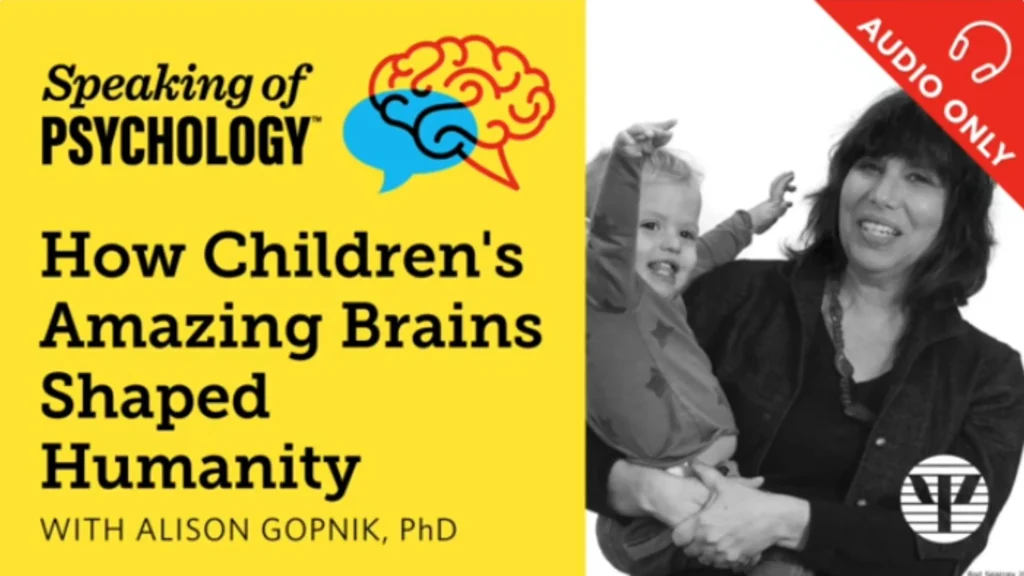
Frequently Asked Questions (FAQs)
How do childhood TV shows influence our personality development?
Childhood TV shows influence personality development by providing behavioral models, teaching emotional regulation, introducing moral frameworks, and shaping cultural values during formative years. Characters often become “parasocial friends” that children learn from and identify with, incorporating aspects into their developing sense of self.
Why do childhood TV shows make us feel so nostalgic?
Childhood TV shows trigger nostalgia because they’re linked to our formative years when we were developing our identities and emotional responses. Research shows these programs activate neural pathways connected to positive memories and simpler times, releasing feel-good neurochemicals that improve mood and reduce stress.
Is watching childhood TV shows just escapism or does it have psychological benefits?
Watching childhood shows offers genuine psychological benefits beyond mere escapism. Studies show nostalgic viewing can reduce anxiety, combat loneliness, enhance mood, strengthen sense of identity, and increase feelings of social connectedness. During stressful periods, these familiar shows provide comfort through predictability and emotional safety.
Why do we remember theme songs from childhood shows so vividly?
Theme songs from childhood shows form strong neural connections because they combine music (which activates emotional memory centers) with repetition (we heard them frequently). These songs were experienced during our brain’s peak developmental period for musical memory, creating lasting emotional associations that trigger immediate recognition decades later.
Can sharing childhood shows with your own children strengthen family bonds?
Sharing childhood shows with your children creates meaningful intergenerational bonds through shared references and emotional experiences. This practice allows parents to communicate values, provides context for cultural changes over time, and creates new shared memories. Research shows 78% of parents report meaningful conversations arising from watching their childhood favorites with their kids.

